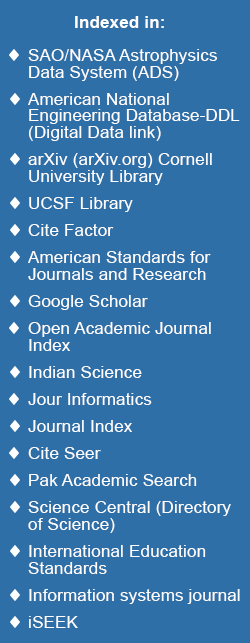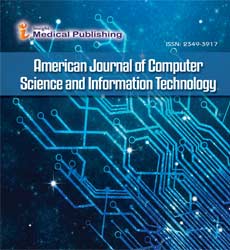ISSN : 2349-3917
American Journal of Computer Science and Information Technology
Software Engineering Competencies (SEC): Hotspot for software engineering research and practice
Barbara Weber*
Department of Computer Science, University of St Gallen, Switzerland
- *Corresponding Author:
- Barbara Weber
Department of Computer Science, University of St Gallen, Switzerland
E-mail:Weber234@gmail.com
Received date: : July 05, 2022, Manuscript No. IPACSIT-22-14385; Editor assigned date: : July 07, 2022, PreQC No. IPACSIT-22-14385 (PQ); Reviewed date:July 23, 2022, QC No IPACSIT-22-14385; Revised date:: : July 31, 2022, Manuscript No. IPACSIT-22-14385(R); Published date:Aug 08, 2022, DOI: 10.36648/ 2349-3917.10.8.4 /> Citation: Weber B (2022) Software Engineering Competencies (SEC): Hotspot for software engineering research and practice. Am J Compt Sci Inform Technol Vol. 10 Iss No.8:004.
Description
Considering the critical role of software in modern societies, we face an urgent need to educate more competent software professionals. Software Engineering Competencies (SEC) are considered the backbone of successfully developing software products. Consequently, SEC has become a hotspot for software engineering research and practice. Although scientific literature on SEC is not lacking, to our knowledge, a comprehensive overview of the current state of SEC research is missing. To that end, we conducted an extensive and systematic review of the SEC literature. We provide an overview of the current state of research on SEC, with a particular focus on common SEC research areas. In addition to reporting the available SEC models and frameworks, we compile a list of 49 unique essential competencies of software professionals. Finally, we highlight several gaps in the literature that deserve further research. In particular, we call for a better understanding of how the essential competencies of software professionals change over time, as well as fresh accounts of the essential competencies of software professionals. Additionally, considering recent shifts toward Agile methods, future research must explore the competencies required for developing software products in modern development environments. Software drives or affects every device we use for any area of our lives.
Shortage and the Critical Role of Software in Modern Life
Developing software products is a complex and resource-intensive process that requires competent software professionals. However, the software industry faces an increasing demand for, and a significant shortage of skilled software professionals. Considering this shortage and the critical role of software in modern life, there is an urgent need to educate and train more competent software professionals. Generally speaking, competence is defined as a collection of skills, abilities and attitudes to solve a problem in a given context. In software engineering, competence covers the entire development process and entails software professionals’ knowledge, skills, and attitudes to fulfill a task in a software development project. Software Engineering Competencies (SEC) have become a strategic research area for the software engineering discipline, and much literature has been published in this area. However, to our knowledge, the current literature lacks a comprehensive overview of SEC research. Instead, previous studies only explored specific areas in SEC, such as the role of personality in software engineering, measurement of software engineers’ capability and competence, and models for recruiting software professionals. Hence, a study that comprehensively overviews the current state of the research on SEC and identifies the gaps requiring future studies is needed. Additionally, considering the emergence of various software development approaches during the last three decades, it would be beneficial to understand how essential SEC have changed and evolved over the years.
Overview the Current State of Research on SEC
Since we aimed at comprehensively overviewing SEC topic areas and considering the richness of the literature on this topic, a mapping study was conducted. Through an extensive search and rigorous evaluation process, 60 primary studies were identified for this review. By analyzing these primary studies, we overviewed the current state of research on SEC, focusing on common SEC research areas, available SEC models or frameworks, and the essential competencies of software professionals. In particular, we show that previous literature on SEC focuses on the two main areas of personnel and organizational SEC. Additionally, we identified 14 models or frameworks that can be used for identifying, assessing, and developing SEC. Furthermore, we identified 49 essential competencies and classified them into 11 themes. Our results indicate that despite a rich body of literature, several areas of SEC need further scientific investigation. First, future studies are needed to propose better models or frameworks for providing theoretical accounts and practical implications on different aspects of SEC, especially competence assessment in various software engineering tasks and discerning different levels of satisfaction. Additionally, future empirical research is needed to better understand how software professionals’ competencies change over time or as they move from one role to another.

Open Access Journals
- Aquaculture & Veterinary Science
- Chemistry & Chemical Sciences
- Clinical Sciences
- Engineering
- General Science
- Genetics & Molecular Biology
- Health Care & Nursing
- Immunology & Microbiology
- Materials Science
- Mathematics & Physics
- Medical Sciences
- Neurology & Psychiatry
- Oncology & Cancer Science
- Pharmaceutical Sciences
